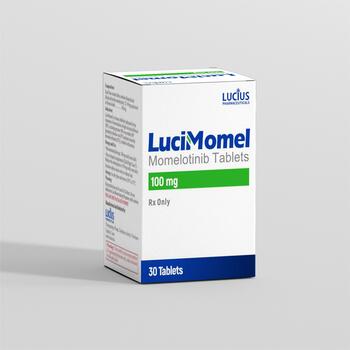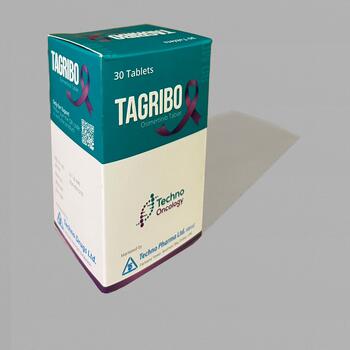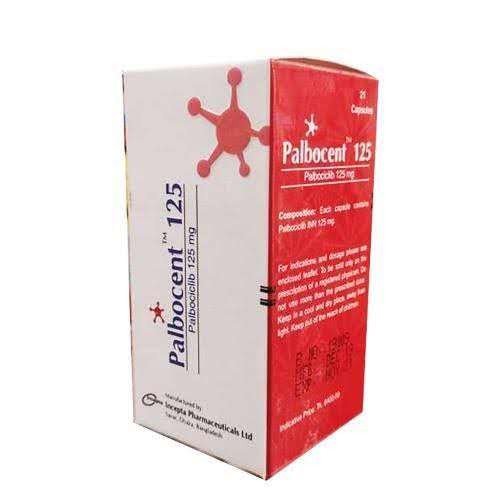莫洛替尼(Momelotinib)100mg

1. Composition:
The active ingredient in Momelotinib is Momelotinib itself, with the chemical name N-(Cyanomethyl)-4-(2-((4-morpholinyl)methyl)phenyl)benzamide. Its molecular formula is C23H26N4O2, and the molecular weight is 390.49 g/mol.
2. Pharmacokinetics:
Momelotinib is primarily used to treat myelofibrosis, a chronic myeloproliferative disorder caused by excessive fibrosis of the bone marrow. The drug works by inhibiting the Janus kinase 1/2 (JAK1/JAK2) and activin receptor-like kinase 2 (ACVR1) signaling pathways, reducing symptoms such as splenomegaly, anemia, and systemic symptoms (e.g., fatigue, night sweats, fever).
Key therapeutic benefits include:
- Relief of splenomegaly and symptoms in myelofibrosis patients.
- Improvement of anemia, reducing the need for blood transfusions.
- Enhancement of patients' physical abilities and quality of life.
3. Usage Instructions:
Momelotinib is usually administered orally in tablet form. The recommended dose is 100 mg once or twice daily, depending on the patient’s condition and response to the drug as determined by the doctor. It can be taken with or without food, and it is recommended to take it at the same time every day to maintain stable drug levels.
4. Research & Development History:
Momelotinib was first disscovered by Cytopia and later developed by Sierra Oncology. It was initially aimed at combating myeloproliferative disorders, particularly for myelofibrosis patients who are unresponsive or intolerant to existing treatments. After multiple clinical trials, Momelotinib demonstrated its advantages in improving anemia symptoms related to myelofibrosis. In 2023, the U.S. Food and Drug Administration (FDA) approved Momelotinib for the treatment of intermediate- and high-risk myelofibrosis.
5. Mechanism of Action:
Momelotinib’s primary mechanism of action is the inhibition of JAK1, JAK2, and ACVR1 signaling pathways. These kinases are overactive in myeloproliferative diseases such as myelofibrosis, leading to dysregulated cell growth, splenomegaly, and anemia. By inhibiting these enzymes, Momelotinib effectively reduces abnormal cell signaling, decreases spleen size, alleviates anemia symptoms, and improves overall quality of life.
Compared to other JAK inhibitors, Momelotinib’s unique feature is its inhibition of ACVR1, which helps reduce anemia in myelofibrosis patients, minimizing the need for frequent blood transfusions during treatment.
6. Summary:
Momelotinib is a targeted drug primarily used to treat myelofibrosis, particularly in intermediate- and high-risk patients with anemia. It works by inhibiting the JAK1/JAK2 and ACVR1 signaling pathways, effectively reducing splenomegaly, anemia, and associated symptoms. Compared to other drugs in its class, Momelotinib has a significant advantage in improving anemia.







